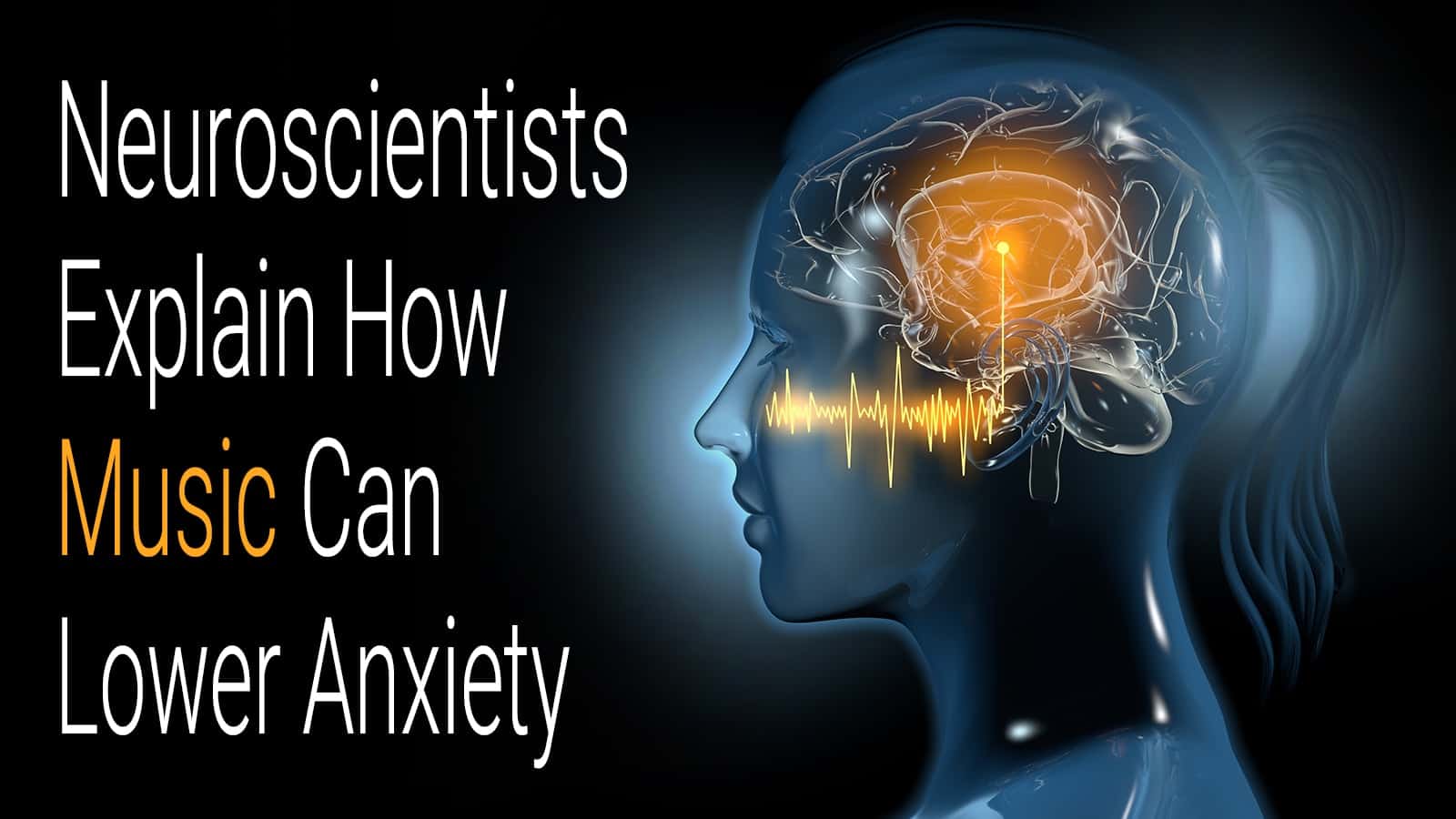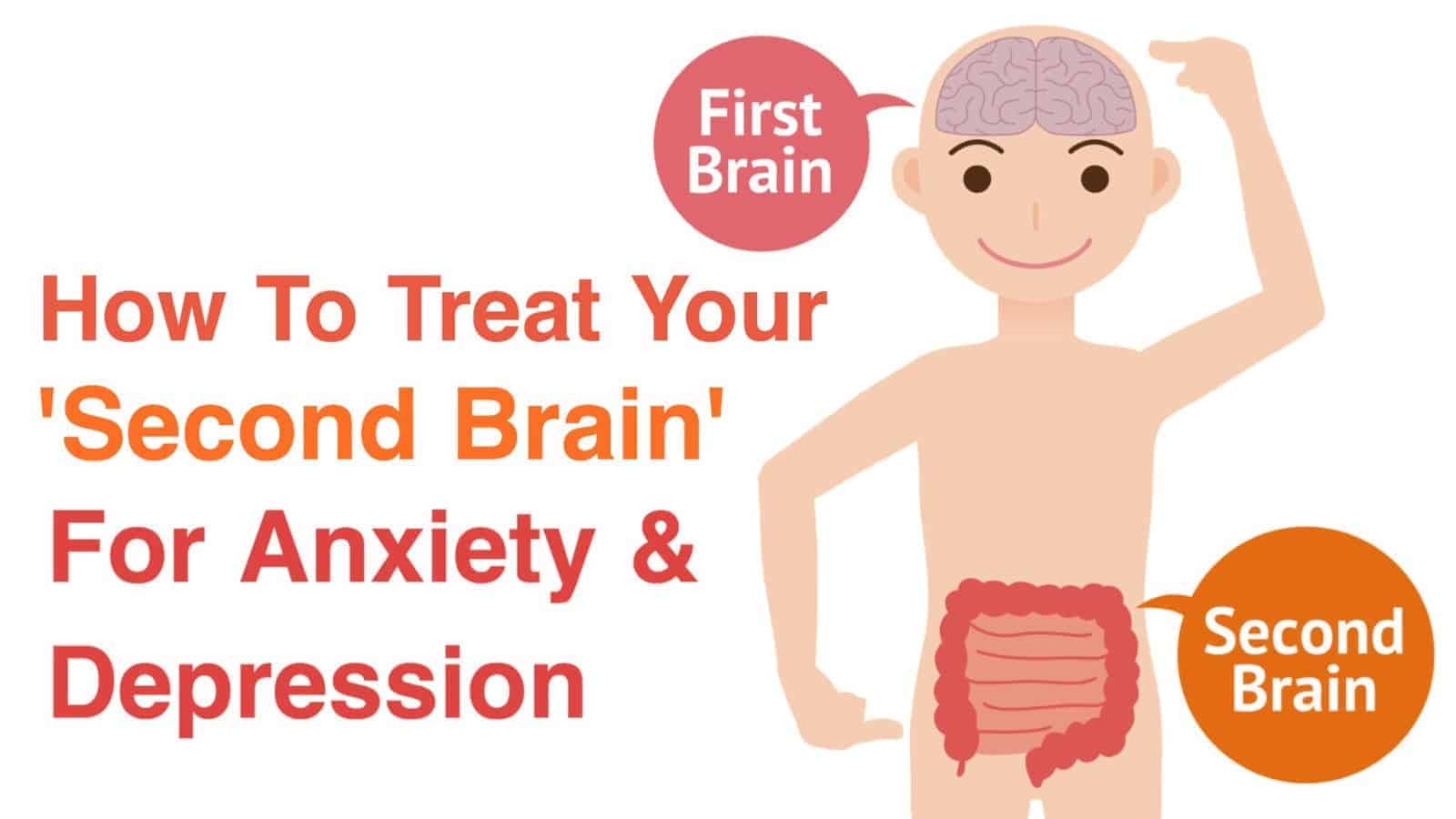After a stressful day, nothing feels better than getting in the car and turning the radio on full blast to drown out the problems in our lives. For centuries, people have turned to music to lift their spirits when they feel sad or need to lower anxiety; in the modern world, music plays a more important role than ever.
Studies continue to show that music helps lower stress levels and results in decreased stress when faced with a difficult task. Without music, would life even be worth it? It’s difficult to imagine a world devoid of any kind of music; luckily, we can always put in our headphones and drift away into a different world.
If music helps you in any way, you’ll be interested to know why music can lower anxiety levels and bring about a sense of well-being.
Anxiety & The Modern World
Research from the 2013 National College Health Assessment examined data from 125,000 students from more than 150 colleges and universities. The study revealed that half of U.S. college students reported “overwhelming anxiety” in the past year. What’s more, one-third of college students said they had a hard time functioning in the last year due to depression.
Clearly, mental health among college students is a growing concern. It isn’t just people attending universities that are affected by the mental health epidemic. According to data from the National Institute of Mental Health, around 22.7% of 30-44 year old’s had anxiety in the past year. Here are more statistics about anxiety from the Anxiety and Depression Association of America (ADAA):
- Anxiety disorders are the most common mental illness in the U.S.. They affect 40 million adults in the United States age 18 and older, or 18.1% of the population every year.
- Anxiety disorders are highly treatable, yet only 36.9% of those suffering receive treatment.
- People with an anxiety disorder are three to five times more likely to go to the doctor; they are also six times more likely to be hospitalized for psychiatric disorders than those who do not suffer from anxiety disorders.
- Anxiety disorders develop from a complex set of risk factors, including genetics, brain chemistry, personality, and life events.
So, why the rise in anxiety and other mental disorders? Many scientists and researchers believe the age of technology and increase in choices may play a part.
In an article on The Telegraph, Rachael Dove writes her opinion on the matter:
“So, what’s going on? The rise of technology, overly-protective parenting and “exam-factory” schooling are among the reasons psychologists suggest for our generational angst. Another, brought up on multiple occasions by my peers and by psychologists I spoke to, is the luxury (as ungrateful as it sounds) of too much choice.”
Pieter Kruger, a London-based psychologist, says research shows that people who don’t have choices are actually more resilient because they feel they can blame life circumstances or other people if they make the wrong decision. However, if you’re given options, you feel that you can only blame yourself if you choose the wrong one. “We become much more obsessive because we want to make the right decision every time,” he says.
However, obsessing over making the right choices can lead to something called analysis paralysis.
This basically means we do nothing because the options available to us seem overwhelming. We get lost in the options and just can’t process so much information without feeling overloaded. When we finally do make a decision, we feel so exhausted from sifting through all the data and mulling over our options that we must retreat to our room for a few days just to recharge.
Added to this problem is the modern convenience of technology. Our 24/7 access to our smartphones and tablets means we can keep tabs on what our friends and family are up to at all hours. This can lead to something called “FOMO” – or “fear of missing out” if we have to go without access to technology for a period of time. We also tend to compare ourselves to friends and family, even if we don’t mean to, and this can increase feelings of anxiety and depression.
So, it seems that the anxiety epidemic can be partially attributed to endless access to technology combined with the luxury of choice. What can we do to combat anxiety, besides throwing away our smartphones and living in a remote jungle away from all the problems of society? The answer might surprise you.
“Without music, life would be a mistake.” – Friedrich Nietzsche
Neuroscientists explain how music can help lower anxiety:
While anxiety has been a part of human life since we arrived on this planet, modern life has caused a full-blown anxiety epidemic. Think of the dings, pings, rings, emails, texts, and social media notifications from our smartphones, plus increasing financial and career pressure. No wonder everyone feels constantly on-edge and filled with doom.
Modern therapies include medications, therapy, meditation, yoga, deep breathing, exercise, and other relaxation techniques. Of course, most people turn to pharmaceutical drugs or conventional therapy; after all, these are readily available and have a high rate of success. Of course, many people without good insurance don’t have these options, so alternative remedies such as meditation or yoga are still quite beneficial for anxiety.
Music therapy is relatively new, but research shows that it can decrease anxiety and depression, increase healing, help manage Alzheimer’s and Parkinson’s disease, and reduce symptoms of psychological disorders such as schizophrenia. While many different musical tunes can help lower anxiety, neuroscientists in the U.K. have found one specific song that can lower anxiety by a whopping 65%!
How was this miracle anti-anxiety music created?
Researchers at Mindlab International in the U.K. wanted to research what type of music induces relaxation the most. The study involved getting participants to solve a variety of puzzles (increasing stress levels) while hooked up to sensors. While solving the puzzles, participants were exposed to different songs. Researchers measured their brain activity, heart rate, blood pressure, and rate of breathing.
They found that one song in particular — “Weightless” — led to a 65 percent reduction in participants’ overall anxiety, and a 35 percent reduction in physiological resting rates.
Created by Marconi Union, the musicians teamed up with sound therapists to create a song that would induce feelings of relaxation. They carefully constructed harmonies, rhythms and bass lines, designed to slow the audience’s heart rate and lower blood pressure. In turn, cortisol levels would decrease as well.
In fact, the song works so well in reducing anxiety that many of the female participants reported feeling sleepy. This fact prompted lead researcher Dr. David Lewis-Hodgson to advise against listening to it while driving. Here is the song for your listening enjoyment:
If you find yourself feeling overly stressed or anxious, turn to this song for relaxation and anxiety relief. Music provides a free, easy way to destress and zone out from a long day of work or school. With the world’s stress levels at an all-time high, we owe it to ourselves to tune out of the demands of society. Just plug in to your own needs every once in a while.
Here are a few other natural remedies for anxiety:
-
Get plenty of sleep.
Sleep deprivation and an irregular sleep schedule can increase cortisol levels in the body. This means more anxiety for you to deal with. Make sure you go to sleep and wake up at the same time every day, even on the weekends. Also, have a sleep routine every night. Include things such as meditation, reading a book, taking a relaxing bath, or drinking your favorite flavor of tea. Make bedtime an enjoyable time that includes self-care and relaxation techniques.
-
Journal before bed.
Many of us stay awake with racing thoughts. Thankfully, this can be eliminated by writing down anything that troubles us before bed. If you get your worries out on paper, your mind will feel much lighter. You’ll find yourself better able to nod off to sleep at night.
-
Stay away from too much caffeine and alcohol.
Both of these can contribute to anxiety. For this reason, make sure you either reduce your intake or eliminate them altogether.
-
Exercise.
Obviously, exercise does more for us than just decrease anxiety. However, the fact that it’s another free (and possibly fun) option means you should keep this on the top of your list for anxiety-reducing techniques.
-
Eat a balanced diet.
Notice that we said “balanced” and not “rigid.” Treat yourself every once in a while to avoid totally falling off the wagon. Meanwhile, try to eat mostly whole, fresh foods such as fruit, vegetables, lean meats, grass-fed dairy, nuts, seeds, and grains.
-
Drink plenty of water.
Being dehydrated can lead to a slew of health problems, one of which is an increase in anxiety.
Closing Thoughts
We hope these tips help you to stay anxiety-free. Remember – any time you feel anxious, you can always plug in your headphones; pull up some relaxing music to tune out the world.














 Community
Community

